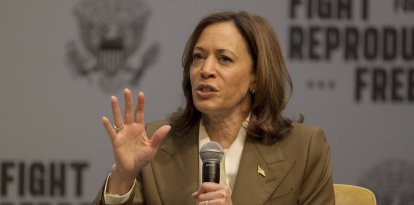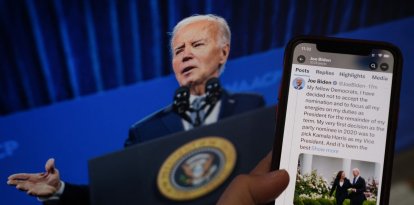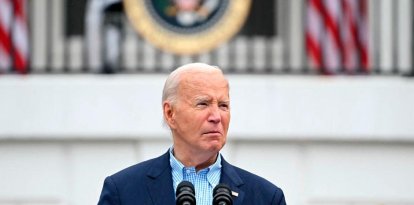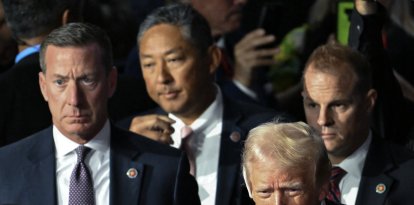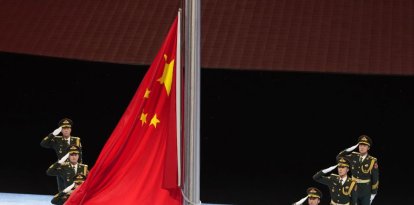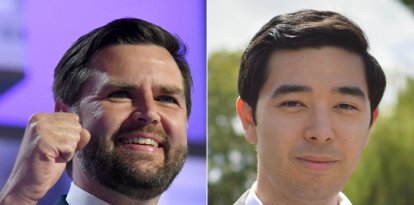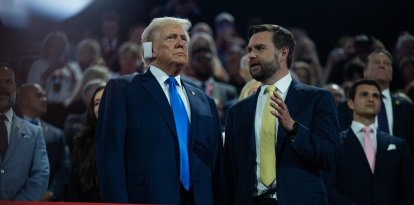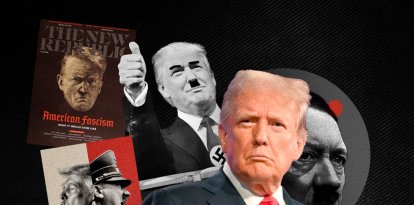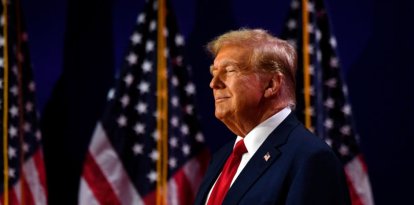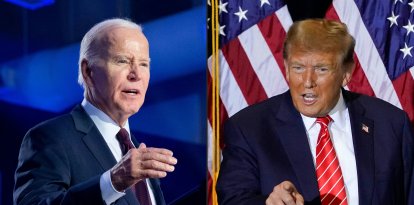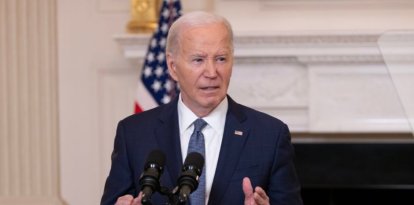Why Tucker should interview Putin
Carlson has been called a traitor, and bans have been proposed to prevent him from entering the E.U. and even the U.S., his home country.
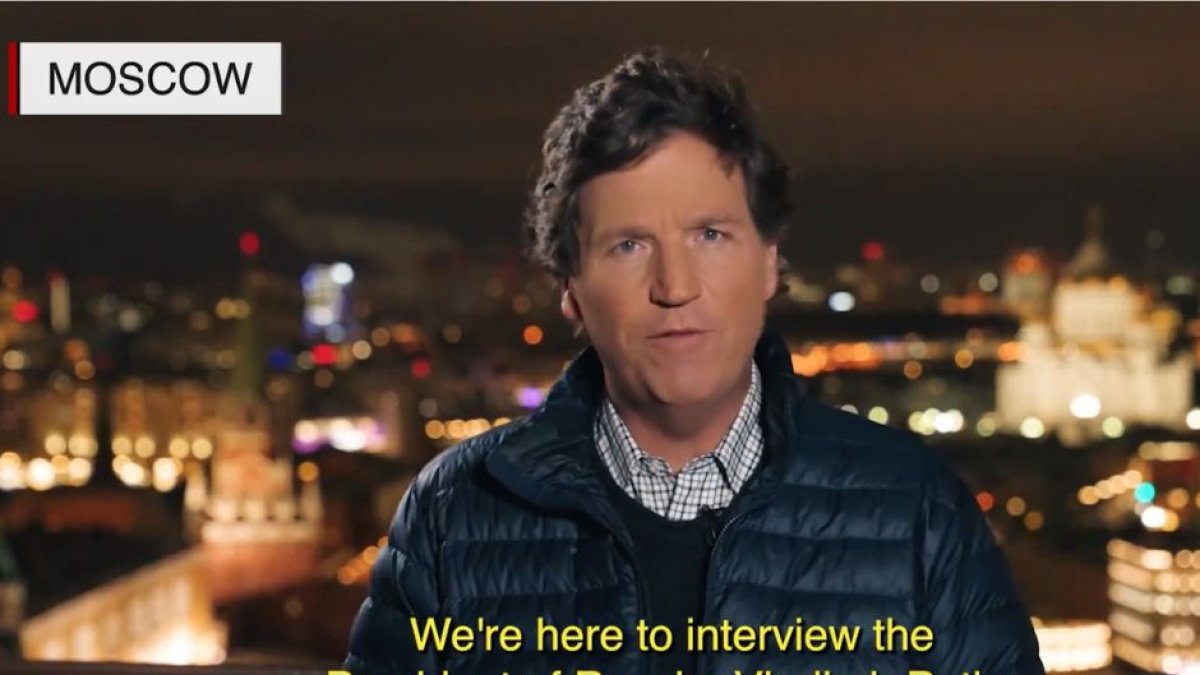
(X / @TuckerCarlson)
The announcement of Tucker Carlson's interview with Vladimir Putin has caused an uproar that illustrates the ideological shift against freedom of the press in societies where this right was once believed to be more protected. Carlson has been called a traitor and bans have been proposed to prevent him from entering the European Union and even the U.S., his home country. These disproportionate reactions reveal the current state of the free press, and ultimately freedom of speech, a foundational value that has been increasingly threatened in its natural habitat: liberal democracies.
Carlson, in turn, is a seasoned debater. With a video on X, he confirmed the rumors he had surreptitiously traveled to Moscow to interview the Russian president, in what will be the first face-to-face that Putin has granted to an American journalist since he invaded Ukraine.
The Kremlin recently contradicted the claim that Carlson was the only Western journalist who had requested an interview since the invasion. "We received many requests for interviews with the president," government spokesman Dmitry Peskov said when asked if Carlson was the only person who asked to sit down with Putin. Likewise, both CNN's Christiane Amanpour and the BBC's Steve Rosenberg refuted the claim that the former Fox News host was the only one who requested an interview with the Russian leader. However, Peskov pointed out that Putin had agreed because Carlson is different from the one-sided stances taken by other Western media outlets. According to Peskov, Carlson's reporting "is in no way pro-Russian, it is not pro-Ukrainian, it is pro-American," saying that it contrasts with other English-speaking media. Apparently, Carlson has been after this interview for a long time. According to the information that he revealed, he tried to interview Putin previously, but he was met with repudiation from United States intelligence services, and he and his close friends and family members received threats. Carlson claims that his phones were tapped and his messages were leaked to the press.
A loud and delirious controversy broke out in the European Union as a result of the interview. Belgian MEP Guy Verhofstadt said Carlson was “playing into Vladimir Putin's hands” and added “Tucker Carlson is surely on the path to being labelled a propagandist for the Russian regime. If he enables disinformation for Putin, the EU should explore a travel ban." He also maintained that the European External Action Service should examine the case. This is the European agency in charge of imposing sanctions on those who collaborate with the Kremlin, ranging from fines and seizure of assets to a ban on entering any of the E.U.'s 27 member countries. Verhofstadt is not alone. Former MEP Luis Garicano told Newsweek that he agreed with Verhofstadt's position. "He is no longer a newsman, but a propagandist for the most heinous regime on European soil and the one which is most dangerous to our peace and security."
In The Washington Post, Erik Wemple called Carlson a "Putin apologist," while MSNBC's Alex Wagner referred to him as a Russia propagandist. The White House appears to have given its view through National Security Council spokesman John Kirby, who stated that "I don't think we need another interview with Vladimir Putin to understand his brutality," and that the Russian leader should not be given another spokesman to justify his war in Ukraine. "it should be very obvious to everybody what Mr. Putin has done in Ukraine and the bogus — completely bogus and — and ridiculous reasons for which he tried to justify it." Bill Kristol, former chief of staff to the U.S. vice president, argued, "Perhaps we need a total and complete shutdown of Tucker Carlson re-entering the United States until our country's representatives can figure out what is going on." Adam Kinzinger, former Republican representative, claimed that Carlson was a “traitor” for visiting Moscow.
Despite everything, Carlson will premiere the interview on X this Thursday, as he did with other sitdowns with Javier Milei, Viktor Orbán and Donald Trump. In his promotional video, he maintained, "We are not here because we love Vladimir Putin." He continued: "We are not encouraging you to agree with what Putin may say in this interview, but we are urging you to watch it. You should know know as much as you can. ... Americans have a right to know all they can about a war they're implicated in, and we have the right to tell them about it," Carlson said, adding that he had also requested an interview with Ukrainian President Volodymyr Zelensky.
It is striking that politicians and the media get so irritated by an interview. The most important pages of political journalism are nourished by reports on the most abject people. Their value lies in the possibility of knowing how these characters think and in what factors their power lies. This maxim of journalism is reflected in hundreds of examples. In 1997, CNN interviewed Osama Bin Laden, and in 2003, CBS interviewed Saddam Hussein. In 2015, Reuters interviewed the Chinese dictator Xi Jinping, and in 2019, the BBC interviewed Venezuelan tyrant Nicolás Maduro. In October 2023, The Economist interviewed Moussa Abu Marzouk from Hamas, and the brilliant Oriana Fallaci interviewed Argentine dictator Leopoldo Galtieri, Muammar Gaddafi and Ayatollah Khomeini, whom she called a tyrant while not wearing a headscarf.
Putin himself has been interviewed by many American and European journalists prior to the war against Ukraine. He even had opinion articles published in The New York Times. Of course, freedom of expression and the press contrast with the restrictions imposed in Russia on national and foreign journalists. Wall Street Journal journalist Evan Gershkovich and Radio Free Europe journalist Alsou Kurmasheva should not be forgotten, as they both remain imprisoned in Russia. Carlson interviewed Putin in the midst of his administration's attack on the free press with cases of Russian journalists murdered and exiled.
Since Putin ordered the invasion of Ukraine in 2022, many Western media outlets have left Moscow or closed their newsrooms due to expanded control over what is published and draconian press laws. But in free societies, precisely those that Putin does not like, people have the right to investigate and publish any point of view and information they want. It is a benefit for all free citizens that diverse points of view exist. The more voices the better, even those that are shocking or dissident, such as Tucker Carlson's.
Asking what powerful figures think is always of interest, much more so if they are figures who are currently dominating the political and military scene. It is frankly authoritarian to curtail journalistic work or to say what is journalism and what is not. This is a disastrous variant of cancel culture. And it is delusional to try to exclude a journalist from a country or a region for his opinions or for doing his job in the way he considers to be right. A state or a suprastate should never have the power to determine what citizens can ask, listen to or investigate. If this drift is followed, there will be no difference between these societies and Putin's Russia, Maduro's Venezuela or Xi's China. In a free society, all voices should be welcome to speak. The rest is dictatorship.













